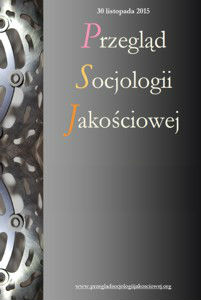Upośledzenie umysłowe jako niepełnosprawność i jako sposób bycia człowiekiem.
A history of the exclusion of the mentally handicapped
Author(s): Elżbieta Zakrzewska-ManterysSubject(s): Health and medicine and law, Welfare services
Published by: Uniwersytet Łódzki - Wydział Ekonomiczno-Socjologiczny
Keywords: mental handicap; intellectual disability; segregative policy; integration; inclusion; diversity; humanity
Summary/Abstract: The article corresponds to the problems of terms describing people as mentally disabled vs. intellectually disabled, compared to those with an intellectual disability. The application of each of those notions is justified by the premises of an axiological and worldview nature. Political correctness encourages us to replace stigmatizing terms with more neutral ones. However, the question arises: from where did the terms of a discriminating character appear in the language? The article presents examples of the application of segregation policy since the 1970s, as a result of which the intellectually disabled remained in residential care centers, separated from the rest of society. Based on the literature of the 1970s, a dramatic picture of the fate of people deprived of human dignity is painted. This situation meant that the terms applied to intellectually disabled people condemned them to the worst position in society. It began to change when the policy of social integration and inclusion was implemented in the West. The second part of the article includes deliberations over the understanding of the words "disability" and "intelligence" (a word present in the term intellectual disability). Two contrasting ways of comprehending the term intelligence are presented: one derived from ancient times and the other introduced by the modern system of psychological measures. I demonstrate what consequences the application of those two understandings of the term intelligence bring for the understanding of the human condition entangled in the modern world. The summary presents the conclusion that mental retardation does not need to be treated as a deficiency or a dysfunction, but it may be – according to the idea of variety – treated as an equal way of being a human, different from the statistical majority of the population, however, still demonstrating a unique specificity and beauty.
Journal: Przegląd Socjologii Jakościowej
- Issue Year: XI/2015
- Issue No: 3
- Page Range: 14-24
- Page Count: 10
- Language: Polish

